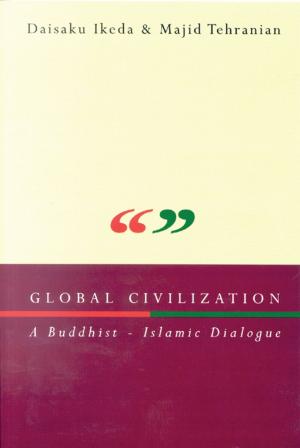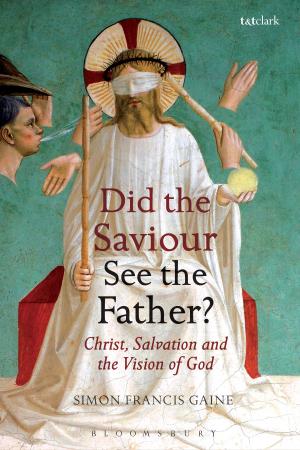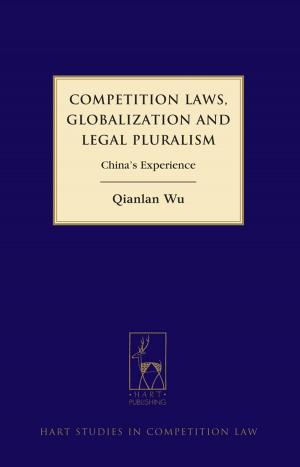New Horizons in Eastern Humanism
Buddhism, Confucianism and the Quest for Global Peace
Nonfiction, Religion & Spirituality, Eastern Religions, Buddhism, Philosophy| Author: | Tu Weiming, Daisaku Ikeda | ISBN: | 9780857731180 |
| Publisher: | Bloomsbury Publishing | Publication: | March 31, 2011 |
| Imprint: | I.B. Tauris | Language: | English |
| Author: | Tu Weiming, Daisaku Ikeda |
| ISBN: | 9780857731180 |
| Publisher: | Bloomsbury Publishing |
| Publication: | March 31, 2011 |
| Imprint: | I.B. Tauris |
| Language: | English |
China now attracts global attention and headlines that are directly proportionate to its increasing economic and geopolitical power. But for several millennia the philosophy that has guided and shaped the soul of China is not modern Communism, or even new forms of capitalism, but rather Confucianism. And one of the most striking phenomena relating to China's ascendancy on the world stage is a burgeoning interest, throughout Asia and beyond, in the humanistic culture and value-system that underlie Chinese politics and finance: particularly the complex, multi-layered and sophisticated thought of Confucius as passed on in the Analects.
In this stimulating and wide-ranging conversation, two leading thinkers from the Confucian and Mahayana Buddhist traditions explore the timely relevance of rejuvenated Confucian ethics to some of the most urgent issues in the modern world, including: Sino/Japanese/US relations; the transformation of society through education and dialogue; and the role of world religions in promoting human happiness and flourishing. Assessing fascinating correspondences between the Confucian and Buddhist world-views, and discussing such thinkers as Mencius, Nichiren, Zhang zai, Spinoza, Gandhi, Max Weber, Levinas, Okada Takehiko, Tang Junyi, and Habermas, the interlocutors commit themselves to a view of spirituality and religion that, without blurring cultural difference, is focused above all on the 'universal heart': on a notion of harmony between people and nature that leads finally to peace and to a hopeful future for all humanity.
'Both Buddhism and Confucianism exemplify the praiseworthy philosophy of going beyond the confines of the individual.' - TU
'Fragrant, beautiful gardens are only possible because, blooming in its own individual way, each plant contributes to the weaving of overall harmony.' - IKEDA
'A true philosopher and religious leader does not become bogged down in doctrinal disputes but breaches the walls of convention for the sake of pioneering new modes of thinking and new ways of acting.' - TU
'Secularization has brought humanity many scientific and other blessings. At the same time, it has had a spiritually hollowing effect, depriving people of meaning in life and reasons to live.' - IKEDA
'In simple terms, the Confucian way is a way of learning to be human.' - TU
'Because it reveals its participants in unaccustomed lights, dialogue is spiritually creative. It reveals in a richer, fresher, wider manner paths to follow and ways to live.' - IKEDA
China now attracts global attention and headlines that are directly proportionate to its increasing economic and geopolitical power. But for several millennia the philosophy that has guided and shaped the soul of China is not modern Communism, or even new forms of capitalism, but rather Confucianism. And one of the most striking phenomena relating to China's ascendancy on the world stage is a burgeoning interest, throughout Asia and beyond, in the humanistic culture and value-system that underlie Chinese politics and finance: particularly the complex, multi-layered and sophisticated thought of Confucius as passed on in the Analects.
In this stimulating and wide-ranging conversation, two leading thinkers from the Confucian and Mahayana Buddhist traditions explore the timely relevance of rejuvenated Confucian ethics to some of the most urgent issues in the modern world, including: Sino/Japanese/US relations; the transformation of society through education and dialogue; and the role of world religions in promoting human happiness and flourishing. Assessing fascinating correspondences between the Confucian and Buddhist world-views, and discussing such thinkers as Mencius, Nichiren, Zhang zai, Spinoza, Gandhi, Max Weber, Levinas, Okada Takehiko, Tang Junyi, and Habermas, the interlocutors commit themselves to a view of spirituality and religion that, without blurring cultural difference, is focused above all on the 'universal heart': on a notion of harmony between people and nature that leads finally to peace and to a hopeful future for all humanity.
'Both Buddhism and Confucianism exemplify the praiseworthy philosophy of going beyond the confines of the individual.' - TU
'Fragrant, beautiful gardens are only possible because, blooming in its own individual way, each plant contributes to the weaving of overall harmony.' - IKEDA
'A true philosopher and religious leader does not become bogged down in doctrinal disputes but breaches the walls of convention for the sake of pioneering new modes of thinking and new ways of acting.' - TU
'Secularization has brought humanity many scientific and other blessings. At the same time, it has had a spiritually hollowing effect, depriving people of meaning in life and reasons to live.' - IKEDA
'In simple terms, the Confucian way is a way of learning to be human.' - TU
'Because it reveals its participants in unaccustomed lights, dialogue is spiritually creative. It reveals in a richer, fresher, wider manner paths to follow and ways to live.' - IKEDA















